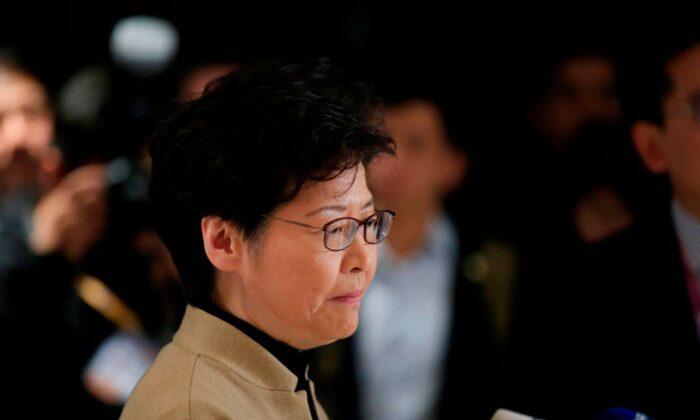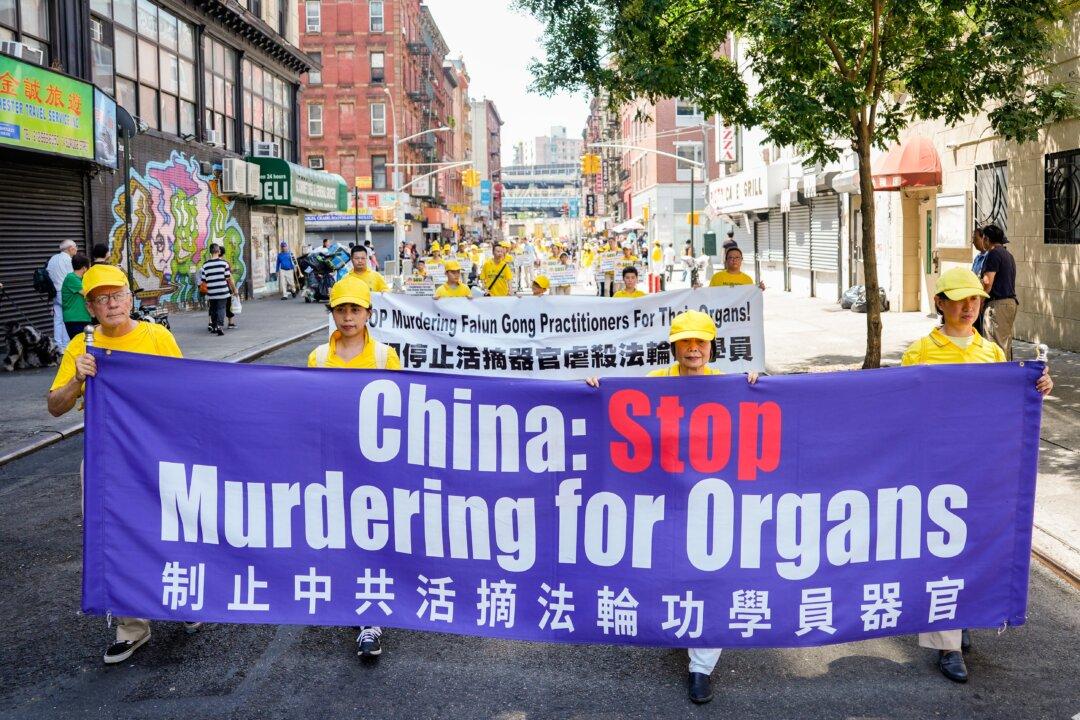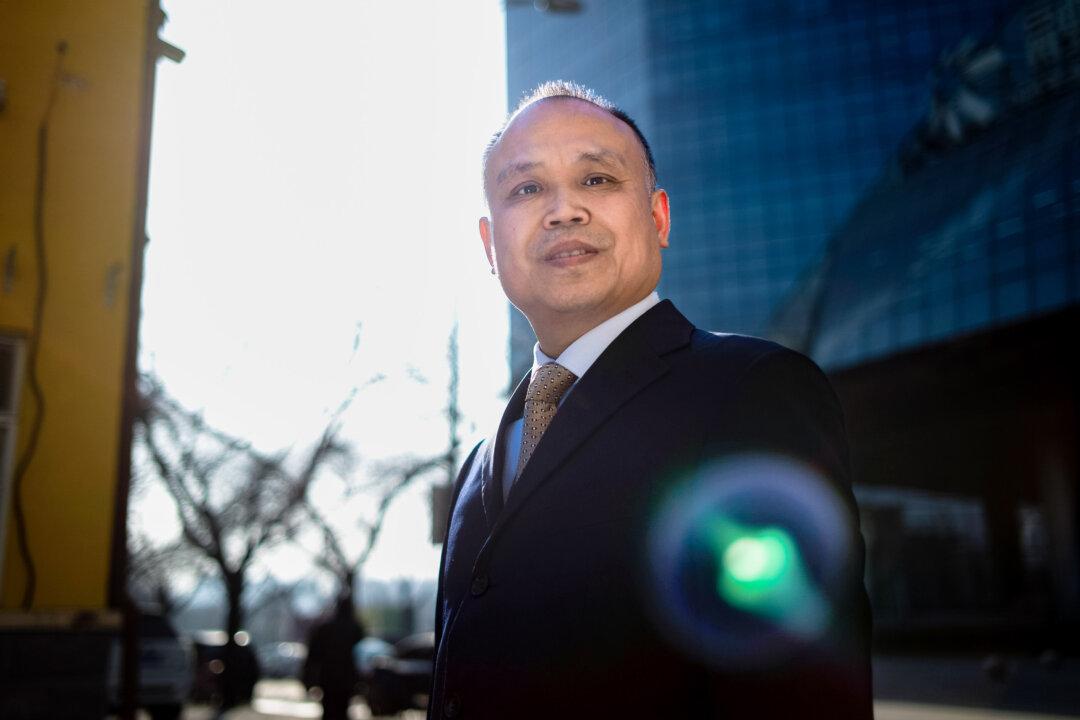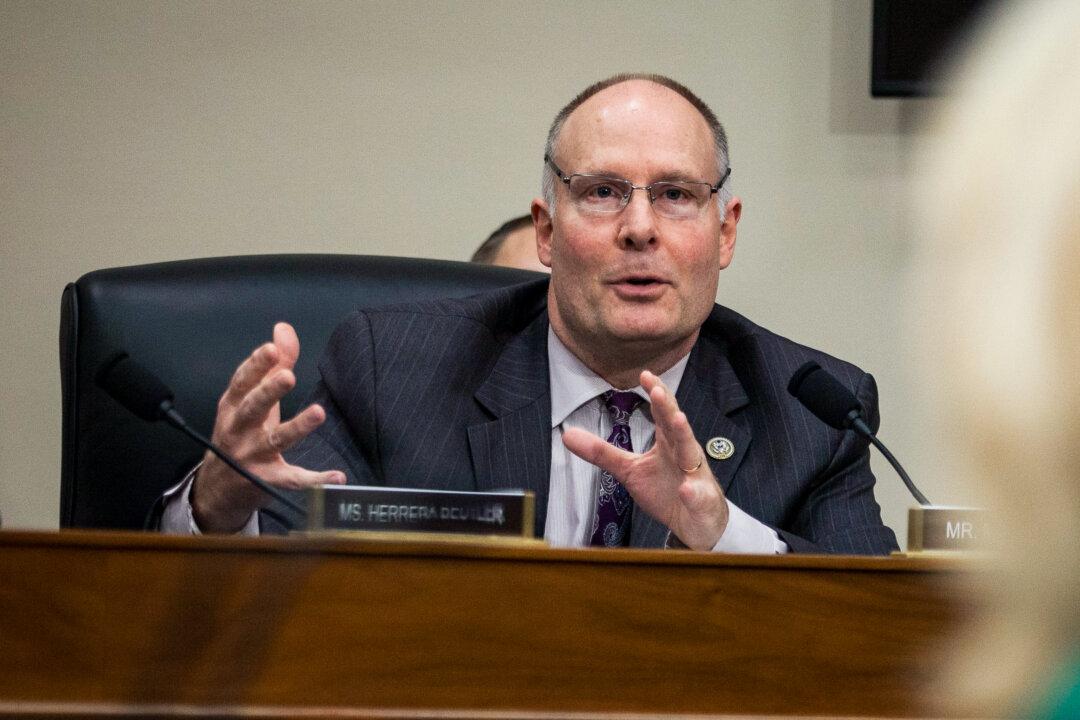In the span of a few days, Hong Kong leader Carrie Lam received support for her handling of the months-long unrest in the city from another top Chinese official.
Han Zheng, the Communist regime’s top official overseeing Hong Kong affairs and the vice premier, met with Lam in Beijing in the morning on Nov. 6.
Han stated that the Chinese central government trusted Lam deeply, and gave his full approval of Hong Kong police who he said had “dutifully” carried out their job, according to Hong Kong media. On the other hand, Xi, during his meeting with Lam, did not state his affirmation of the city’s police force.
Over the course of the protests, Hongkongers have grown increasingly distrustful of the police, blaming officers for deploying violent tactics against protesters.
Han asked Lam to remember to lead her team to “restart” and “move forward again.”
He then lashed out at the protests, saying that they had evolved into “nonstop violence,” which “seriously damages Hong Kong’s social order, undermines the rule of law, and challenges the bottom line of one country, two systems.”
The “one country, two systems” model is currently used in Hong Kong, following the city’s handed over from Britain to China in 1997. It was intended to preserve the city’s autonomy and freedoms not available in the mainland.
The current protests are a pushback against Beijing’s creeping influence in the city’s daily affairs, including in education and the press.
He emphasized that Hong Kong should be governed in accordance with its mini-constitution, the Basic Law.
In response, Lam told Han that she was very much encouraged by meeting with Xi, which made her and her administration “more resolute” in ending the “violence” in Hong Kong, in accordance with “one country, two systems.”
Lam added that she was saddened to see that more than one-third of the over 3,000 people arrested since June were students.
While Beijing is throwing its support behind Lam, the Hong Kong leader’s popularity rating in the city has been declining rapidly since June.
Pro-democracy lawmaker Alvin Yeung, in a press conference on Nov. 4, urged Lam to offer her resignation to Han when the two met, saying she failed to curb police’s heavy-handed tactics against protesters.
At the same press conference, pro-democracy lawmakers played a video taken during the protests over the past weekend, which showed police firing 22 canisters of tear gas in the span of less than a minute.






Friends Read Free